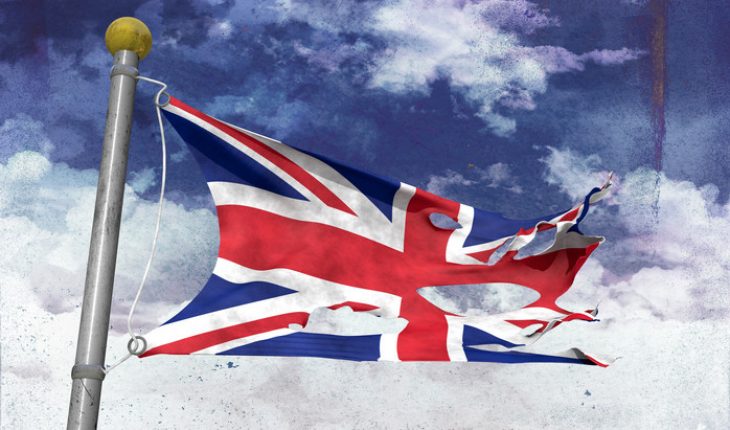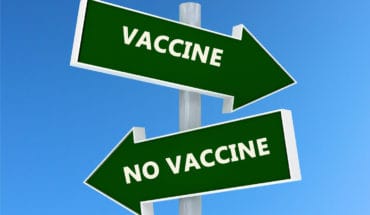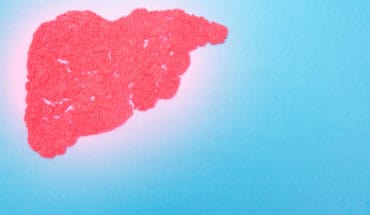Last month Hillary Clinton took people back more than 30 years when she mis-remembered the policy and personal failures to tackle the then emerging AIDS crisis. Her error has allowed us to remember the many brave people who fought to bring justice, care and compassion to inhumane policy decisions; activists and scientists are the real heroes of the AIDS battles of the 80s.
Perhaps the most chilling exchange of the whole period is a 1982 Q&A between a White House Reporter Lester Kinsolving and Press Secretary Larry Speakes, which Slate shared in December 2015: in which Speakes laughs and jokes as Kinsolving asks what the President is doing about the AIDS crisis. Thankfully activists and researchers fought this.
I want to add to that list of inspring individuals we are remembering and share the work of two brilliant British scientists who convinced then Prime Minister Margaret Thatcher to act on AIDS: the Noble Laureate Professor Max Perutz and Raymond Dwek, now Professor of Biochemistry at Oxford University. It’s the story of their scientific research against the odds and of what Britain and the US can do when they act together.
Between 1985 and 1987 two-to-three thousand people were being diagnosed with HIV each a year. (By 1989 around 1000 people had been diagnosed with AIDS and by 1991 more than 1000 people had died from the diseases). In 1987 Perutz met Margaret Thatcher to stress the urgency of HIV research. As Norman Fowler makes clear in Aids: Don’t Die of Prejudice, Thatcher was prudish on sexual issues. It’s said that Perutz convinced her by saying she’d be remembered as the Prime Minister who did nothing. While she had trouble with the sex, her scientific interest was piqued. She had a hunch that the sugars in the HIV molecule would be relevant and she wanted a cure in 10 years.
So 12 of Britain’s leading virologists and scientific minds met at Cambridge University under the chairmanship of Nobel Laureate Max Perutz, to plan a strategy. To me they battled political cowardice and Britain’s creaking medical research bureaucracy to begin a life-saving campaign to beat AIDS. Perutz asked Raymond Dwek to lead the work on developing antiviral drugs.
Although the UK AIDS research programme had begun in 1983, it wasn’t delivering. Many scientists, like much of the country, steered clear of the issue (and the patients). In addition, bureaucrats and politicians were worried about how education programmes would play with voters. AIDS was becoming a national crisis.
Dwek and Perutz set up testing centres to give the first weekly data on the scale of the problem. They met survivors and high-risk groups and were helped, at a distance, by the work of Princess Diana to humanise sufferers. They asked scientists all over Britain to send possible compounds and found one on the leaves of a mulberry tree in Kew Gardens that had antiviral properties.
Perutz felt the British medical research establishment was taking too long to synthesise these compounds and asked Dwek, who by then was the first scientist at Oxford University and in British history to have a research grant from a US company, to ask the President of Monsanto, Richard Mahoney, to help. Mahoney did. He gave his chemists to the project and ordered that the Chicago Nutrasweet factory make the drug for clinical trial.
Dwek and Perutz were slated to give a stirring speech to the Chicago workforce to start their efforts. On the day of the big speech Perutz pulled out. Only years later did Dwek discover that the fight against AIDS was a personal one for Perutz. Perutz’s nephew was dying of AIDS and he’d gone to see him.
Sadly the drug failed its trials. High dosages resulted in unacceptable side effects. But they had started a science and medical research programme in Britain to treat suffers and contain the disease. Coupled with a successful national public information campaign and the American drug AZT they made a difference to the lives of thousands of people and I hope can be recognised as so.
Perutz shared the Nobel Prize for Chemistry in 1962 for his study of haemoglobin and myglobin. He founded The Medical Research Council Laboratory of Molecular Biology at Cambridge, fourteen of whose scientists have won Nobel Prizes. He was awarded the Order of Merit, Companion of Honour, CBE and FRS. He was born in Vienna and graduated there before escaping to Switzerland in 1938. In 1939 a Rockerfeller Foundation grant facilitated his escape to England with his parents. On the outbreak of World War II Perutz was rounded up along with other persons of German or Austrian background and sent to Newfoundland on orders of Winston Churchill. It feels right that a refugee should get to the heart of our establishment and challenge it for the benefit of millions of people.
- Britain’s Battles with AIDS – scientists can be rock stars too - 14th April 2016






